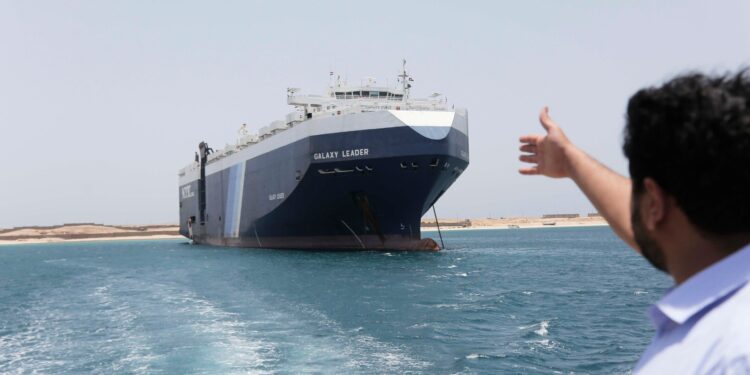Houthi attacks on commercial ships in the Red Sea caused a 90% decline in container shipping through the region between December and February, according to an official assessment by US intelligence officials and reported by Bloomberg.
According to the assessment, the attacks affected 65 countries and forced 29 major energy and shipping companies to change their routes, significantly increasing costs and disrupting global trade.
The Pentagon’s Defense Intelligence Agency revealed – in a rare public statement – that diverting ships to alternative routes around Africa added nearly 11,000 nautical miles to each trip, resulting in an estimated increase of about $1 million in fuel costs per trip, according to Bloomberg.
“Threats to Red Sea transit exacerbate the ongoing pressure on global shipping caused by disruptions in the Panama Canal due to drought,” the agency stated.
Bloomberg indicates that the economic repercussions of these attacks are widespread. Increased flight length and fuel costs had a ripple effect, impacting global trade routes and the supply chain.
Increased military operations
The Houthi campaign – which began last year – aims to pressure Israel and its allies to stop the aggression against the Gaza Strip, according to repeated statements issued by them.
Recent incidents include the Tutor cargo tanker suffering severe flooding in its engine room after a drone attack from the sea, and a small cargo ship catching fire after being hit by two missiles.
Continuing attacks on ships linked to Israel or the United States in the Red Sea increase the cumulative pressure on global shipping.



